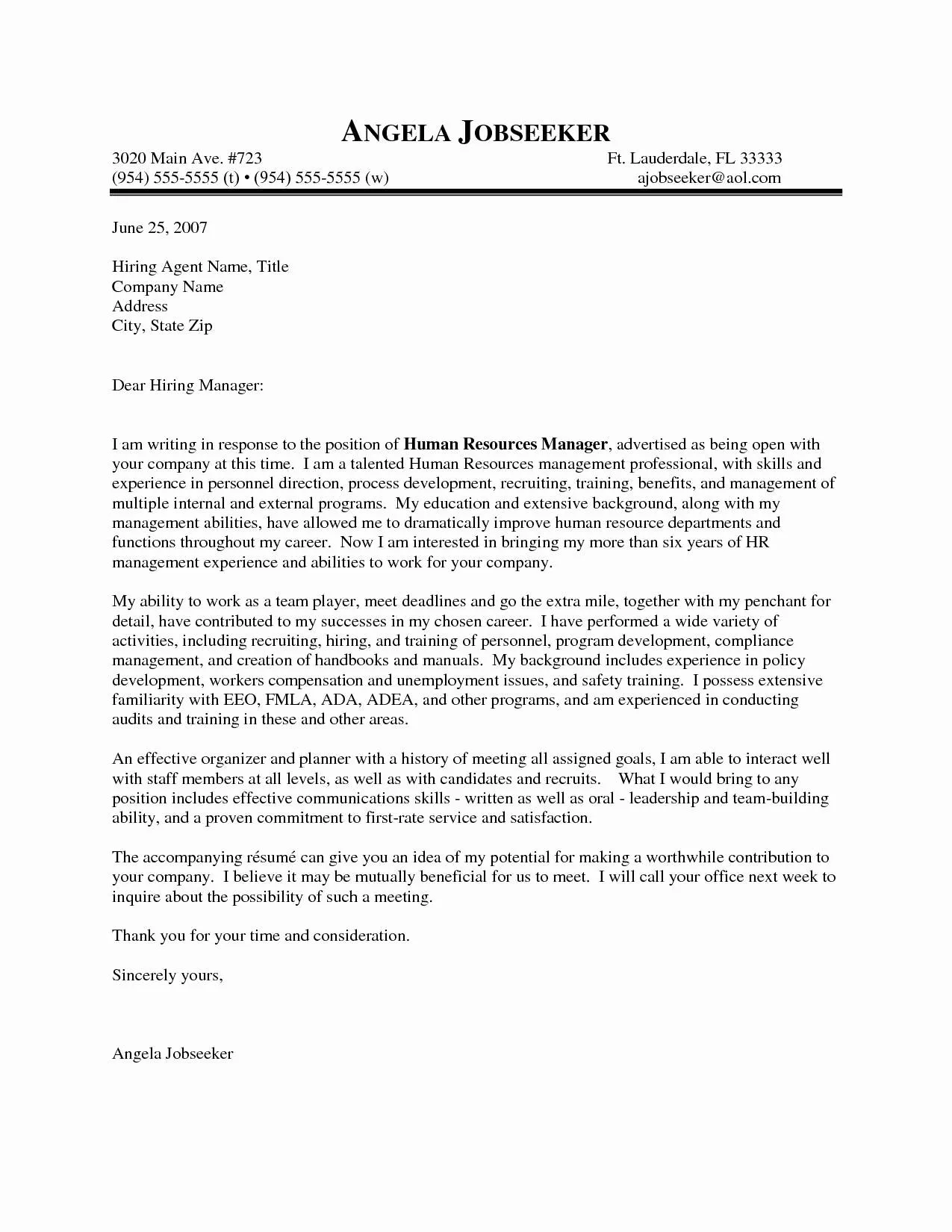What is a Cover Letter & Why Do You Need One
A cover letter is a crucial document that accompanies your resume when applying for a job. It serves as your introduction to the hiring manager and allows you to elaborate on your qualifications, skills, and experiences in a more personalized and detailed way than your resume. Think of it as your opportunity to make a strong first impression and convince the employer why you are the ideal candidate for the position. In today’s competitive job market, a well-crafted cover letter can significantly increase your chances of getting noticed and securing an interview. The cover letter is more than just a formality, it’s your chance to shine.
Importance of a Cover Letter
A cover letter is important because it gives you a platform to show your personality and writing skills, allowing you to stand out from other applicants. It allows you to explain any gaps in your employment history, address any concerns the employer might have, and demonstrate your genuine interest in the company and the specific role. Furthermore, a cover letter highlights your communication skills, attention to detail, and ability to tailor your message to a specific audience. It also demonstrates your initiative and professionalism.
Cover Letter vs. Resume
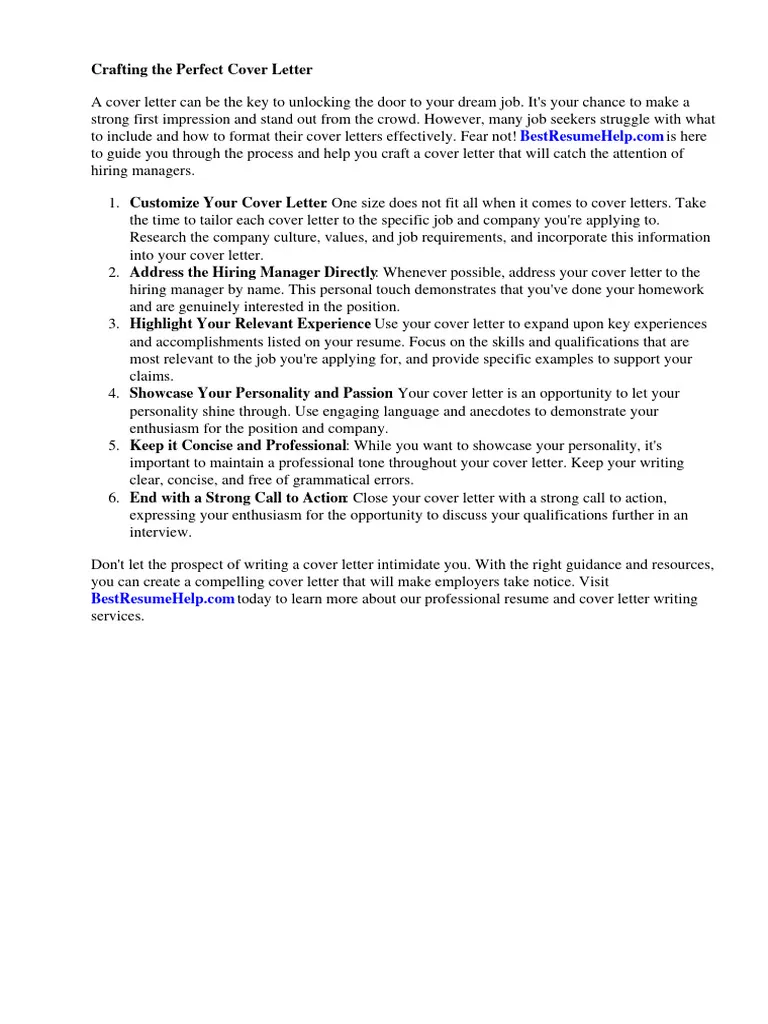
While your resume provides a factual overview of your work experience, education, and skills, a cover letter offers a narrative. Your resume lists what you’ve done; your cover letter explains why you’re the best fit. The resume presents a concise summary, while the cover letter allows you to expand on your achievements and connect them to the job requirements. Think of them as complementary documents working together to present a complete picture of your candidacy. The resume is a quick reference and the cover letter provides context.
Top 5 Cover Letter Tips
Writing a compelling cover letter doesn’t have to be difficult. By following these tips, you can create a document that captures the hiring manager’s attention and increases your chances of getting an interview. These tips are designed to ensure your cover letter is not only informative but also engaging and persuasive. They’ll help you highlight your strengths and make a lasting positive impression.
Customize Your Cover Letter for Each Job
Generic cover letters are a major turn-off for employers. Instead, take the time to tailor each cover letter to the specific job and company. Show that you’ve done your research and understand the role and the organization’s needs. This level of personalization demonstrates your genuine interest and dedication. Customization shows that you’re not just sending out mass applications but are genuinely invested in the opportunity.
Research the Company & Role
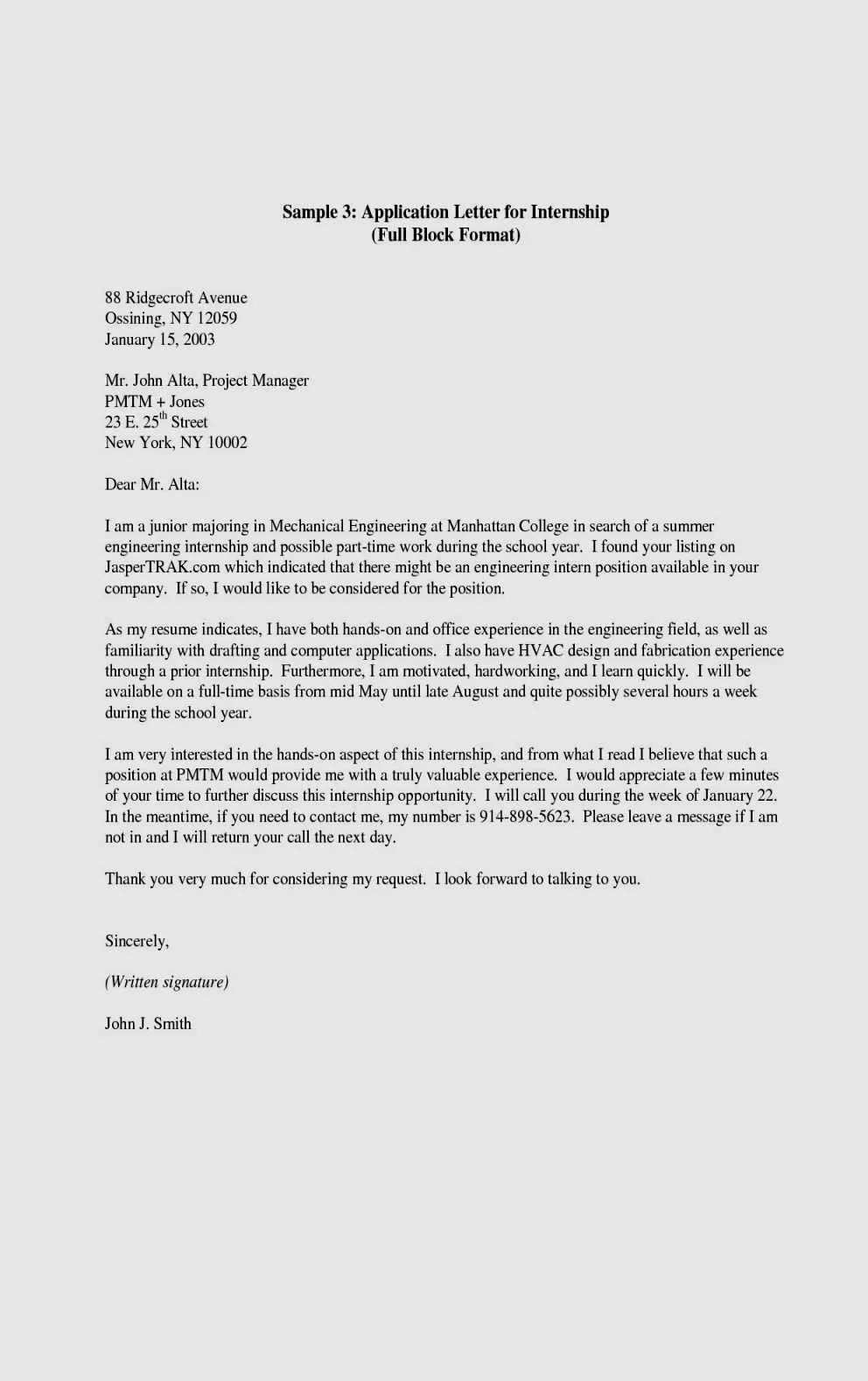
Before you start writing, research the company’s mission, values, and recent achievements. Understand the specific requirements and responsibilities of the job. This information will help you tailor your cover letter to address their needs and showcase how your skills and experiences align with their expectations. Use the job description as your guide and incorporate relevant keywords to make your application more relevant.
Highlight Relevant Skills & Experiences
Don’t just list your skills; demonstrate how you’ve used them to achieve results. Provide specific examples of your accomplishments and quantify them whenever possible. Use action verbs to describe your contributions and focus on the skills and experiences that are most relevant to the job requirements. Tailor your descriptions to match the language used in the job posting.
Show, Don’t Tell
Instead of stating you are a good communicator, provide an example of how you effectively communicated in a professional setting. Instead of saying you’re a team player, describe a project where you collaborated successfully with others to achieve a common goal. Use concrete examples to illustrate your abilities and demonstrate the impact of your actions. Show the employer what you’re capable of.
Quantify Your Achievements
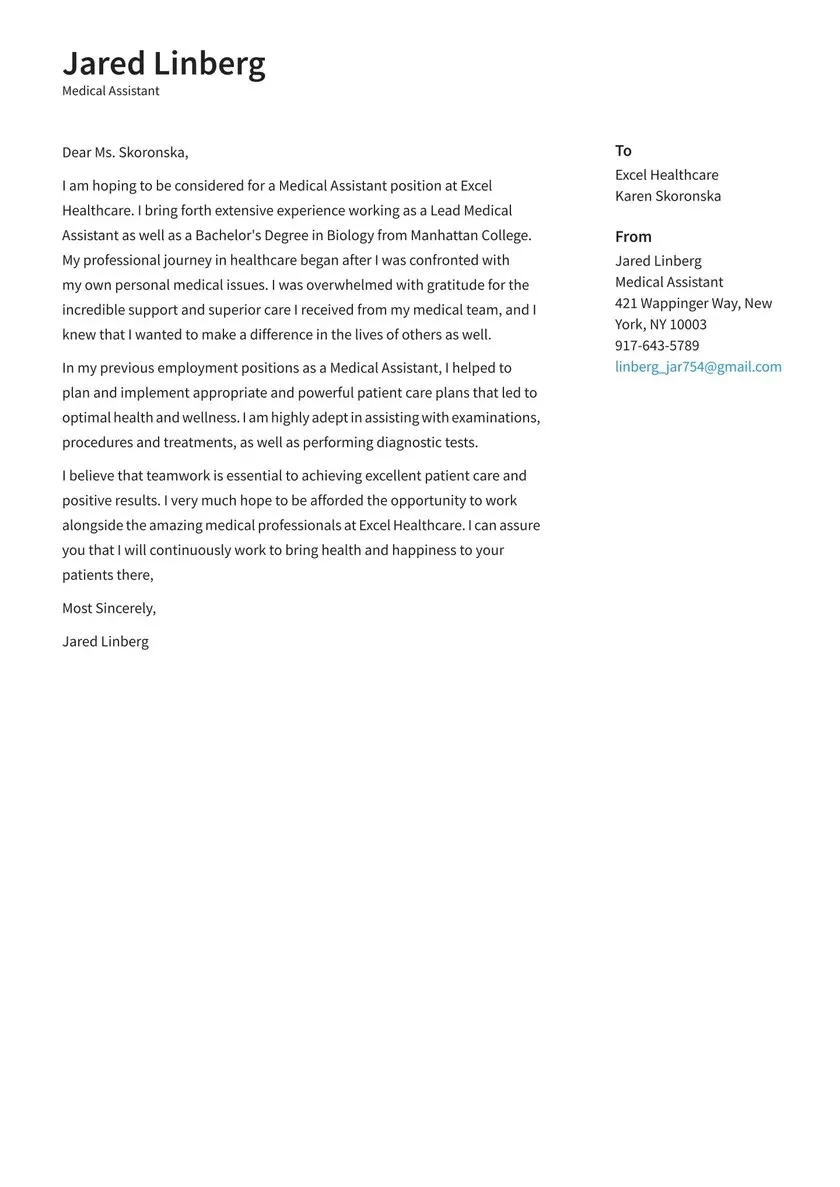
Whenever possible, use numbers and data to quantify your achievements. Instead of saying you increased sales, say you increased sales by 15% in one quarter. Quantifiable results make your accomplishments more tangible and impressive. This shows the hiring manager the value you can bring to their organization and gives them a clear understanding of your impact.
Use Strong Action Verbs
Action verbs make your cover letter more dynamic and engaging. Start your sentences with strong verbs that describe your accomplishments and responsibilities. This makes your letter more active and showcases your skills effectively. Examples of good action verbs include: managed, led, developed, implemented, achieved, and exceeded. This helps to make your achievements stand out.
Keep It Concise & Readable
Hiring managers are busy people, so keep your cover letter concise and to the point. Aim for one page and use clear, easy-to-read language. Use short paragraphs and bullet points where appropriate to break up the text and make it more visually appealing. A well-formatted cover letter demonstrates professionalism and respect for the reader’s time. Make sure your letter is easy to scan.
Proofread Your Cover Letter
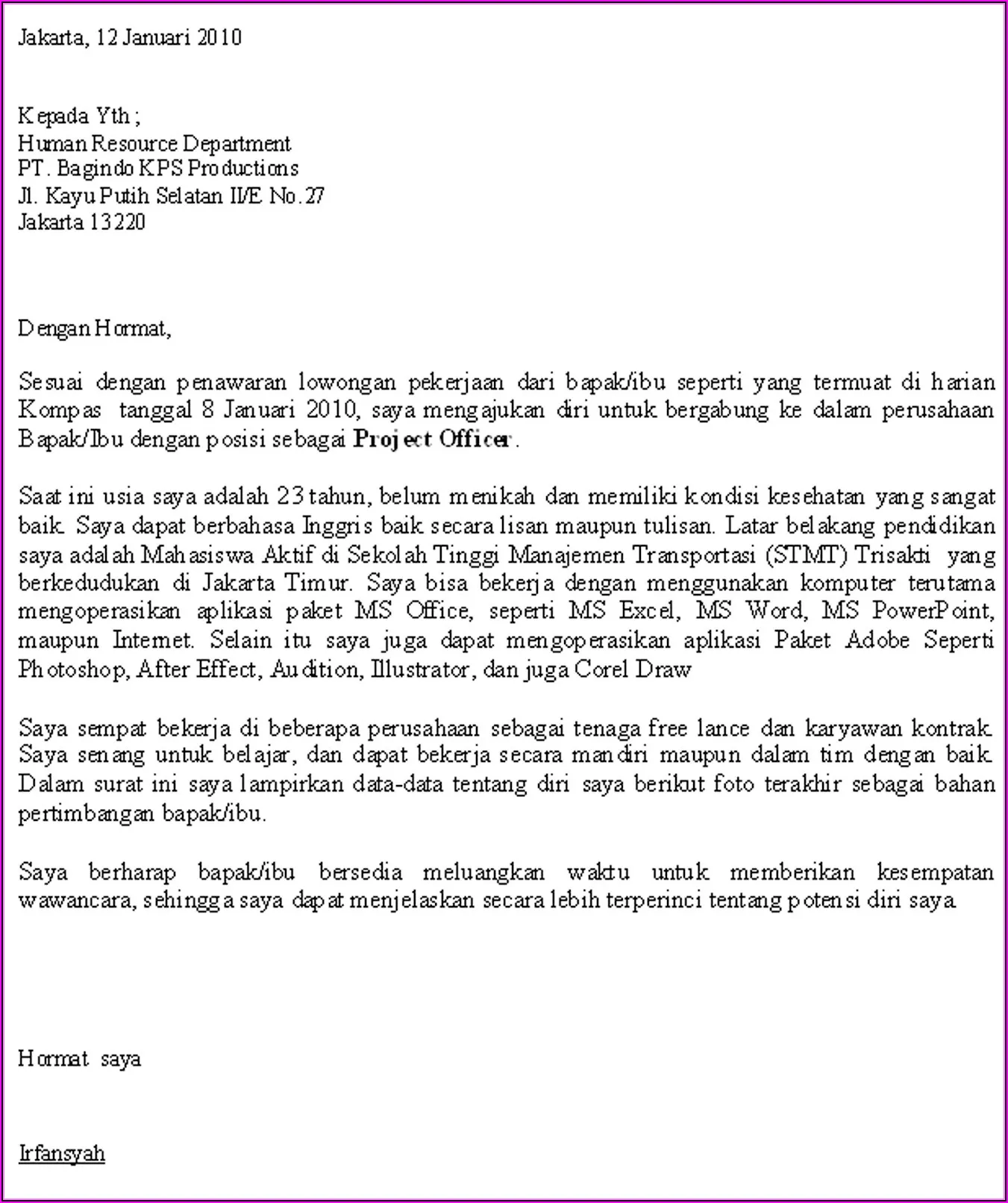
Typos and grammatical errors can damage your credibility and make you appear unprofessional. Always proofread your cover letter carefully before submitting it. Check for spelling mistakes, grammatical errors, and punctuation errors. It’s also helpful to have someone else review your cover letter for you. Fresh eyes can often catch mistakes that you might miss. A polished letter demonstrates your attention to detail.
Formatting and Structure
Use a professional format that is easy to read. Include your contact information, the date, and the hiring manager’s name (if known). Use a clear font like Arial or Times New Roman and maintain consistent formatting throughout your letter. A well-structured cover letter with a clear layout makes it easy for the reader to understand your message.
Common Mistakes to Avoid in Your Cover Letter
While writing a cover letter, there are several common mistakes that can undermine your efforts. Being aware of these pitfalls will help you avoid them and improve your chances of making a positive impression on the hiring manager. Avoiding these errors is crucial for a successful application.
Generic Cover Letters
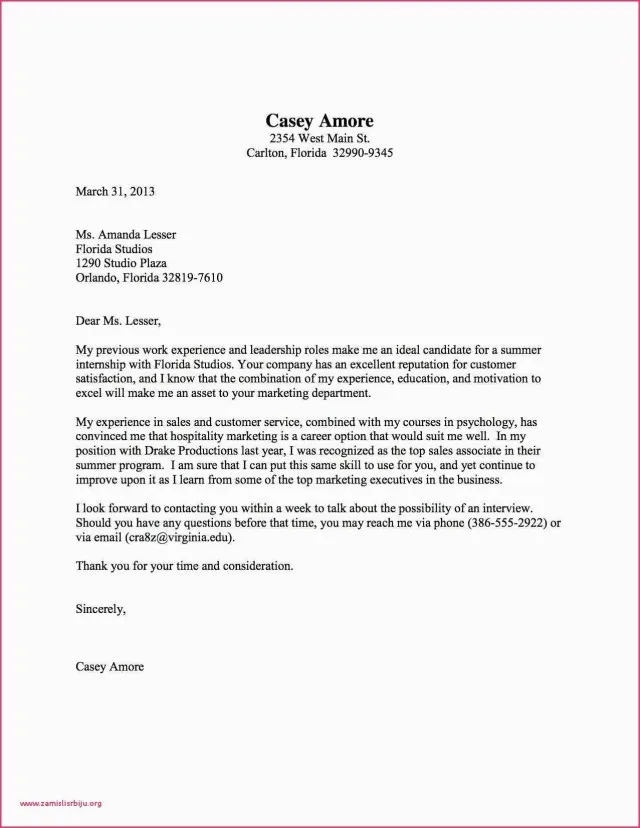
As mentioned earlier, generic cover letters are a major red flag. Employers can easily spot them, and they signal a lack of interest or effort on your part. Always tailor your cover letter to the specific job and company. Showing that you’ve done your research and understand the role will go a long way in capturing their attention.
Typos and Grammatical Errors
Errors in spelling, grammar, and punctuation can reflect poorly on your attention to detail and professionalism. Always proofread your cover letter carefully and consider having someone else review it before submitting it. Double-check everything, including the company name and the hiring manager’s name.
Unprofessional Tone
Maintain a professional and respectful tone throughout your cover letter. Avoid slang, jargon, or overly casual language. Even if the company culture seems informal, it’s essential to convey professionalism. Remember, your cover letter is a professional document that represents you.
Conclusion
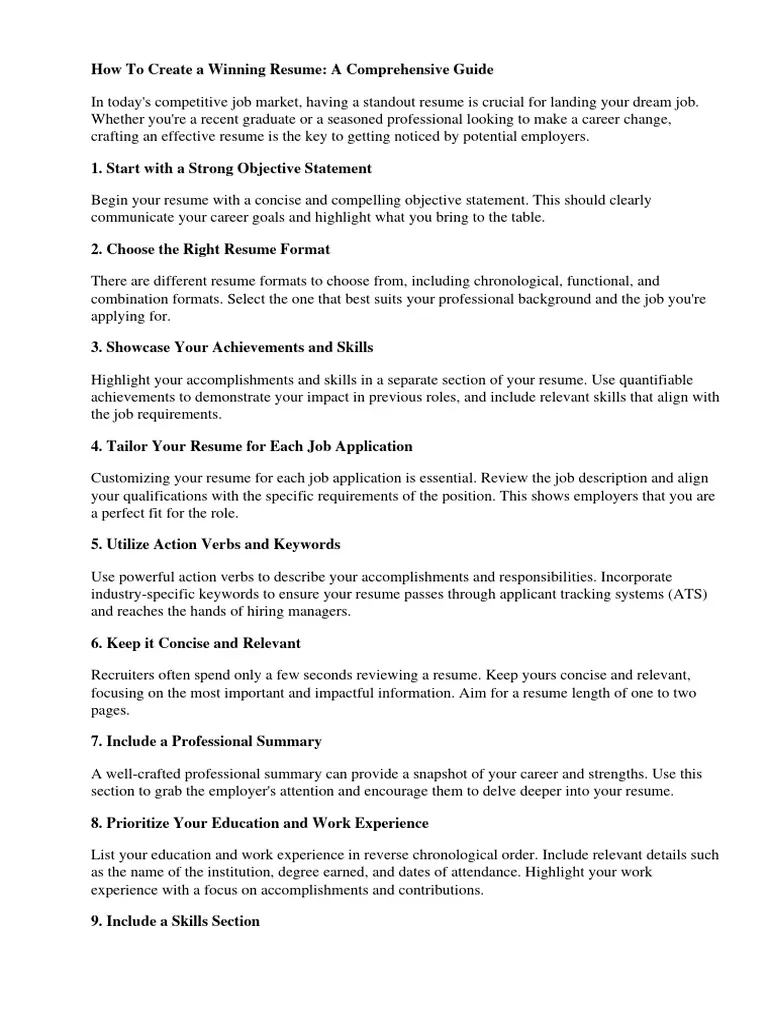
Writing a great cover letter is an essential part of the job application process. By following these tips and avoiding common mistakes, you can create a cover letter that highlights your skills, experiences, and achievements and increases your chances of getting noticed by potential employers. A well-crafted cover letter can make all the difference in landing your dream job. Remember to always tailor your cover letter to the specific job and company, and proofread it carefully before submitting it. Good luck with your job search.
